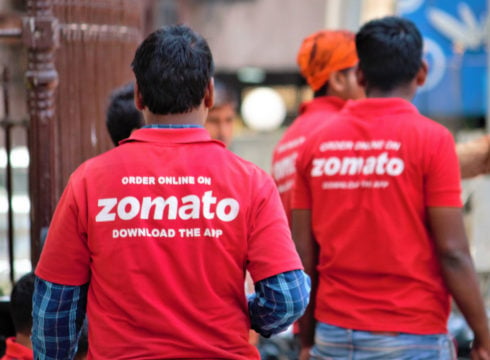SUMMARY
Some delivery executives in Kolkata are protesting against fulfilling orders which have beef or pork in them.
Local politicians and leaders have come out in support of the protesters
Zomato said it is "impossible" to factor in logistics for vegetarian and non-vegetarian deliveries
Inc42 Daily Brief
Stay Ahead With Daily News & Analysis on India’s Tech & Startup Economy
Zomato finds itself in yet another tussle with religion being at the centre of the controversy. Earlier this month, a user by the name of Amit Shukla on Twitter complained to Zomato about how he didn’t want to be served by a Muslim delivery executive, and now in a bizarre turn of events, some delivery riders for Zomato are protesting having to deliver food that’s been deemed impure or blasphemous by their religion.
Riders from both the Hindu and Muslim community have come out to protest against the company for allegedly forcing them to deliver beef, or pork, respectively. Although the protests and the debate around it, which began on Sunday, now have religious undertones, they actually started with a demand for pay revision, with protesting delivery executives claiming that a delivery trip that fetched them INR 80 was revised to INR 25 a trip.
“Why should we be forced to deliver beef against our wishes? We have been protesting against this for the past week,” Sujit Kumar Gupta, a delivery executive of Zomato was quoted as saying.
Another Zomato delivery rider, Mohsin Akhtar, is protesting against having to deliver orders with pork. “Serving pork is against our religious beliefs. We should have a say in what food we carry if it is against our religion.” He added that nearly 200 delivery executives in north Howrah in Kolkata were participating in the protests. Protesters said they were also trying to dissuade their colleagues in Kolkata from picking up delivery orders to the areas where riders have been protesting.
In response to the protests and the debate online, Zomato released a statement saying it would be “impossible” to ensure separation of vegetarian and non-vegetarian orders and factor them into delivery logistics. To put this into perspective, according to the last available data, Zomato processes 38 Mn orders per month.
“Delivery partners are unequivocally made to understand the practical nature of the job as they choose to enter the workforce. All our partners understand this fully. There is a small group of partners in Howrah who have raised concerns and we are looking to resolve the issue as quickly as possible,” – Zomato
Not to be left behind, politicians have unsurprisingly gotten involved in this controversy with Arup Roy and Rajib Banerjee of the ruling Trinamool Congress Party (TMC) coming out in support of the protesters. “We extend our support to them. No one should infringe on anyone’s religious beliefs,” Roy said. Banerjee made a similar comment: “No one has a right to force anyone to do anything against their religious beliefs. We will take up the issue with appropriate authorities,” ET quoted them as saying.
Zomato Targetted For Taking A Stance?
In the current climate of deep religious polarisation and anti-immigration and anti-refugee rhetoric, food and diet preferences have become the unfortunate victims. Last month, Zomato, while replying to a tweet by Shukla, had said “food doesn’t have a religion. It is a religion.”
The online troll army resulted in Zomato’s ranking in the Overall category on Google Play Store falling by 10 points in one day, while its ranking among apps only (excluding games) fell to 32 from 25 over July 30 and 31, according to data by App Annie.
While soon after its tweet, there was a positive response on Twitter, with users supporting the “secularist” stand, the negative comments took over soon. Since then over 100K users have tweeted against Zomato through the #BoycottZomato and #ZomatoUninstalled.
In a turn towards whataboutery, the conversation then shifted to differences over Halal and non-halal meat. The company had to explain why it has a separate tag but kept being questioned on its so-called bigotry.
Zomato CEO Deepinder Goyal had earlier doubled down on the company’s position when he tweeted, “We are proud of the idea of India – and the diversity of our esteemed customers and partners. We aren’t sorry to lose any business that comes in the way of our values.”
For now, Zomato will be acutely aware that its responses on social media and its negotiations on the ground will be closely followed by everyone on both sides of the political aisle. Its business will very likely be impacted in the short term, but the debate around food and religion is not about to die out anytime soon, even when the public spotlight on Zomato fades away.
Note: We at Inc42 take our ethics very seriously. More information about it can be found here.


